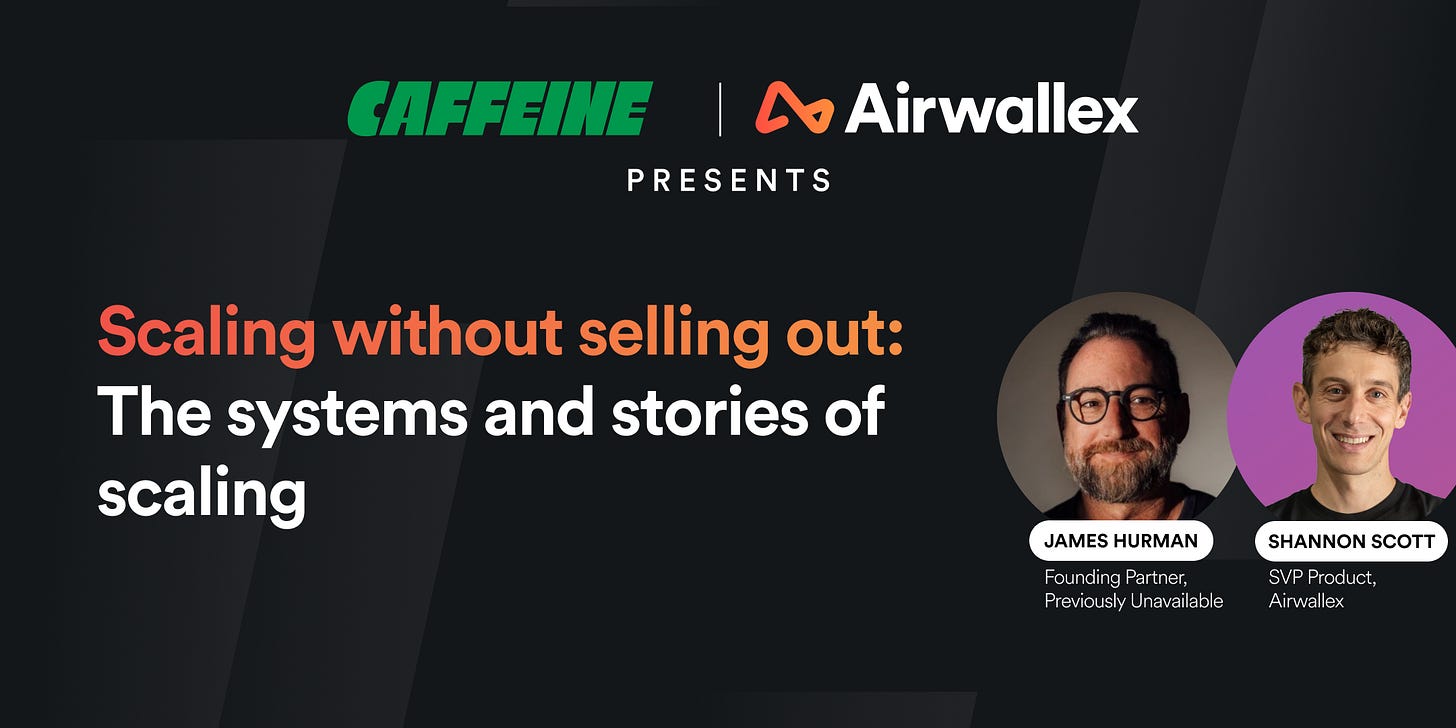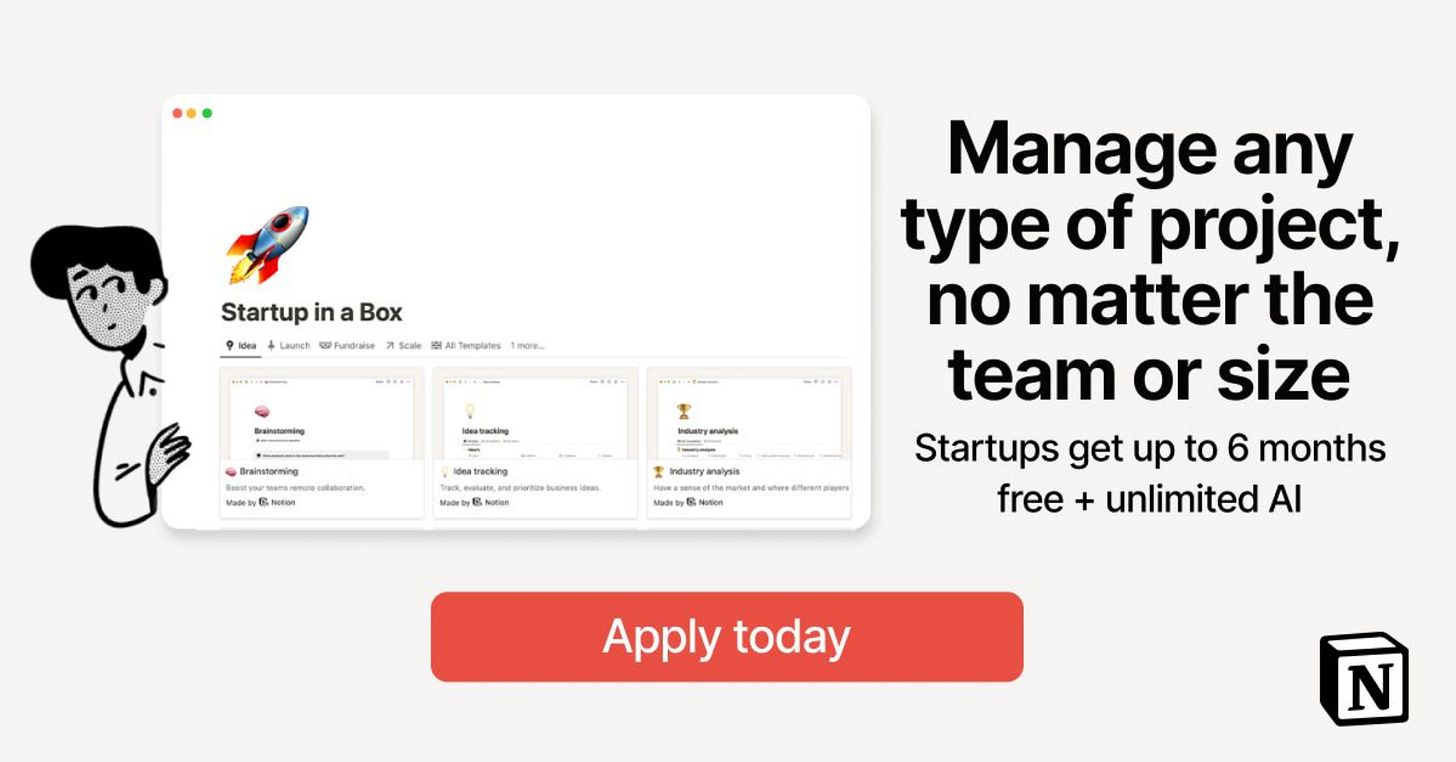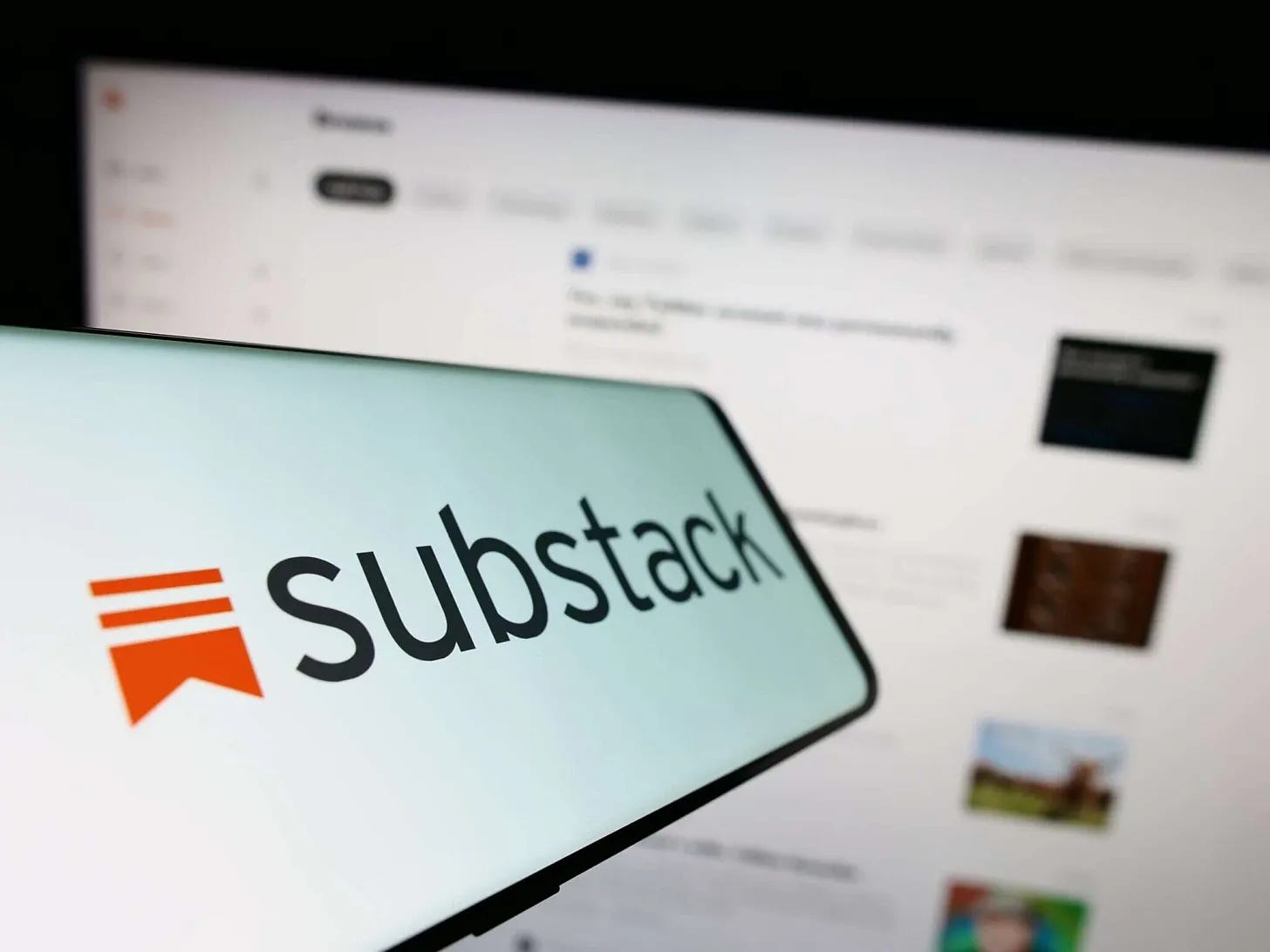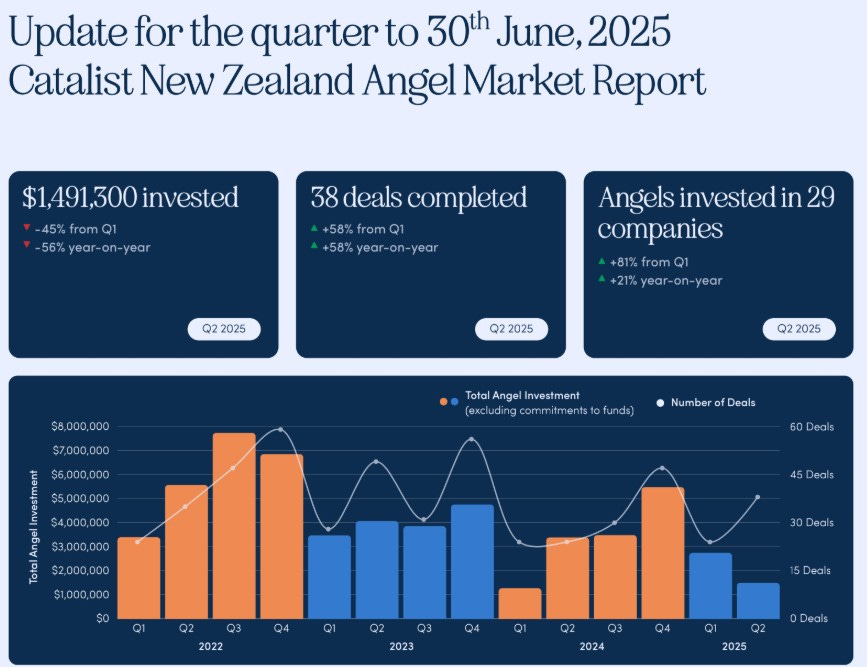Substack reaches unicorn status + tickets almost sold out to Caffeine's next event
Plus: Catalist Angel Market report drops and some insights + reflections from our friends at Icehouse Ventures.
Happy Tuesday!
Kia ora Caffeinators, hope your week has started well. Kicking off this morning with a reminder that tickets are nearly sold out to our next in person event so you should absolutely secure your spot while you can. It’s also free for you guys so there really is no reason not to come along.
Here’s what’s brewing in your Daily Shot:
Scaling Without Selling Out: The Systems and Stories of Scale
Substack surges to unicorn status
Catalist New Zealand Angel Market Report
Icehouse Ventures drops $82.6m of insights to celebrate Seed Fund 4
Three quarters of teens have used an A.I companion - should we be worried? (yes)
As always, thank you to everyone who has upgraded to a paid subscription or simply recommended Caffeine to friends and whānau. We couldn’t do any of this without you.
Finn and the CAFFEINE team
Tickets are almost sold out for the event: Scaling Without Selling Out: The Systems and Stories of Scale. Get in quick!
It’s your last chance to join us for an insightful and revealing fireside chat with James Hurman (Previously Unavailable) and Shannon Scott (SVP, Global Head of Product at Airwallex). Together, they’ll unpack the hidden infrastructure behind scale: payments, workflows, capital flow and the equally essential brand scaffolding: positioning, emotional resonance, and customer connection. Perfect for founders wondering how to scale both what they do and how they’re remembered.
Date and time
Wed, 30 Jul 2025 5:30 PM - 7:30 PM NZST
Location
The Assembly at Britomart 11 Britomart Place #level 10 Auckland
Cost
$55 but free for Caffeine community + 1 with promo code CAFFEINEFRIENDS
At the early stage of your startup, speed wins. You need to ship faster, stay focused, and keep your team aligned without drowning in tools, bloated costs & disparate information.
That’s why startups like OpenAI (yes, that OpenAI), Cursor, Ramp & many more built their early operating systems on Notion — using it as an AI-native connected workspace.
Now it’s your turn.
Stop juggling tools. Notion brings everything together—docs, projects, wikis—powered by AI that makes your team faster. Save $12,000+ on tools this year.
→ Get 6 months free on Business plan
Substack hits unicorn status following mammoth raise: A headline that dropped last week after the newsletter went out which I absolutely have to shout out is the very platform you’re reading this on reaching a phenomenal milestone. Following a $100m USD raise the company has pranced to unicorn status. The platform has a lofty but worthy goal of ‘creating a new engine for culture’ by reshaping the old media model toward something with better incentives.
As someone who worked in traditional media for many years and saw the gnarly end of what’s wrong with the old model, I applaud that vision. The round was led by investors at BOND and The Chernin Group (TCG), with participation from Andreessen Horowitz, Rich Paul, CEO and founder of Klutch Sports Group, and Jens Grede, CEO and co-founder of SKIMS. Founder and expat Kiwi Hamish McKenzie penned a great piece to announce the news available here.
Catalist New Zealand Angel Market Report: Little data dump for you nerds this morning as we check in with our friends over Catalist who have released their latest Angel Market report for Q2.
Headline stats:
Activity remained high, but total value invested decreased in Q2:
Total value invested in Q2 down to $1.49 million
Deal count increased significantly, although a number of deals closed with only a small number of Angels participating. Individual investment sizes dropped accordingly, down to an average of $8,239 per deal, per Angel.
Companies based in Auckland received 34.6% of total investment, down from the 12-month average. Bay of Plenty and Canterbury saw a rise in their share of investment over the previous quarter and over their trailing 12-month average.
Software companies received 70.5% of investment, up almost 10% from the trailing 12-month average.
There was a shift toward convertible instruments in Q2, with over 25% of investment this quarter via convertible notes or SAFEs (up from the average of 6.4% over the previous 4 quarters). The mix of new vs. follow-on investment was consistent with medium-term averages.
Full report is available here.
Icehouse Ventures drops $82.6m of insights to celebrate Seed Fund 4: Our friends over at Icehouse Ventures have been on a hot streak recently. After announcing the launch and first close of Seed Fund Four, CEO Robbie Paul has penned a great blog reflecting on the lessons of the previous funds.
There’s a wealth of information from someone who knows much more than most about this ecosystem, I’ve included a preview below but highly recommend reading the whole blog here.
“We have regrettably missed and declined several great companies, competed successfully and unsuccessfully to secure access and allocations, had our hypotheses validated and invalidated, co-invested with dozens of investors from around the world, and invested in everything from regrowing human skin to HR software to foiling boats.
Here are a few lessons from the last 10 years, 97 investments, and too-many-to-count misses:
1. Founders first, second, and third.
Due diligence on the product, market, competition, traction, etc, can come later. Why is that? Because at the seed stage, you are often investing when a product has not been built and when a market may not (and arguably should not) even exist.
Take Kami as an example. They started in 2012 as Notable PDF, a PDF editing tool. I was relatively dismissive at the time because it felt like a feature that could be added by Adobe. (And clearly I did not have the foresight of Sam Altman and Scott Nolan who chose to back the founders!) Fast forward several years and Hengjie Wang, Alliv Samson, Jordan Thoms and the team navigated the business into a $40m+ revenue, all-in-one platform that saves teachers time and improves educational outcomes. For the next due diligence, my focus is on the people.”
Nearly three quarters of U.S teens have used an A.I companion: As I’ve mentioned many times on the newsletter, I think the first wave of A.I disruption will be felt more in our social lives than our economic ones. Now there’s some troubling data to suggest how quickly that disruption might arrive.
A report from Common Sense media shows around 72% of U.S teens have used ‘companion’ style chatbots at least once while over half reported being regular users. These companions are becoming more realistic every day and the guardrails around them are flimsy to say the least. I think a world where we all have an A.I friend is approaching fast but I don’t think we’ve even started the necessary protections to make that future a moderately safe one.
Check out the full report here.
That’s it for today, thanks for reading. Want to get in touch with a news tip, bit of feedback or just to chat? Email hello@caffeinedaily.co











